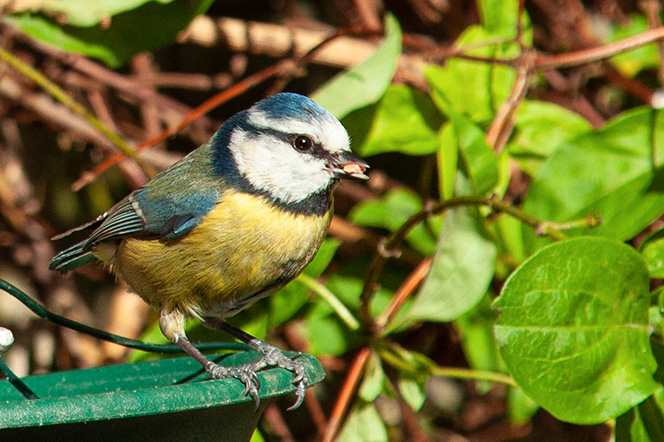Become a citizen scientist
Themes: Children, Garden, Green spaces, Volunteering, Community, Fun

Description
Are you curious about the world and have an eye for detail?
Then citizen science could be for you. With lots of projects to take part in ranging in levels of commitment and participation – your contribution could help improve understanding of the world, and note changes to our environment as climate change takes its toll.
Monitor local wildlife
Surveying wildlife can take place anywhere – from your local park or garden, or even indoors from your living room window. There are many options available that require no prior knowledge or expertise! BioBlitz is a national survey event where people of all ages and walks of life come together to survey a natural space; seeking, identifying and recording as many species as possible over 24 hours.
If you needed even more reason to spread your wings and enjoy some fresh air, why not give butterfly counting or bird watching a try?
You can also record wildlife you’ve spotted at any time with the Environmental Records Centre for the West of England.
By logging your findings, these will help to monitor the health of our environment.
Air Quality Monitoring
Monitoring the air quality in your area can provide information on pollution levels and could help identify pollution hot spots. Many companies sell monitoring equipment but some can produce unreliable results so it’s best to do some research. Poor data is arguably worse than no data at all.
You can buy and build your own sensor from the Sensor Community and become part of an international data gathering project.
There is a range of local open data available on environmental issues including air quality, waste, parks and green spaces, rivers and flooding from the Bristol Open Data Portal.
No time for these?
Be statistic savvy! When you’re faced with a stat, or anything else presented as fact, ask yourself three simple questions1:
- Why am I hearing this? What is the motivation of the source, and what filters has it gone through?
- Is the number reliable? Could there be random or systematic biases?
- How trustworthy is the claim being made?
1www.adruk.org/news-publications/news-blogs/data-literacy-how-to-skill-up-the-nation-248/
Useful links
Sensor.Community – Open Environmental Data
Big Butterfly Count – Download the butterfly ID chart
Explore — Open Data Bristol Bristol Open Data Portal
Become a citizen scientist
Themes: Children, Garden, Green spaces, Volunteering, Community, Fun

Description
Are you curious about the world and have an eye for detail?
Then citizen science could be for you. With lots of projects to take part in ranging in levels of commitment and participation – your contribution could help improve understanding of the world, and note changes to our environment as climate change takes its toll.
Monitor local wildlife
Surveying wildlife can take place anywhere – from your local park or garden, or even indoors from your living room window. There are many options available that require no prior knowledge or expertise! BioBlitz is a national survey event where people of all ages and walks of life come together to survey a natural space; seeking, identifying and recording as many species as possible over 24 hours.
If you needed even more reason to spread your wings and enjoy some fresh air, why not give butterfly counting or bird watching a try?
You can also record wildlife you’ve spotted at any time with the Environmental Records Centre for the West of England.
By logging your findings, these will help to monitor the health of our environment.
Air Quality Monitoring
Monitoring the air quality in your area can provide information on pollution levels and could help identify pollution hot spots. Many companies sell monitoring equipment but some can produce unreliable results so it’s best to do some research. Poor data is arguably worse than no data at all.
You can buy and build your own sensor from the Sensor Community and become part of an international data gathering project.
There is a range of local open data available on environmental issues including air quality, waste, parks and green spaces, rivers and flooding from the Bristol Open Data Portal.
No time for these?
Be statistic savvy! When you’re faced with a stat, or anything else presented as fact, ask yourself three simple questions1:
- Why am I hearing this? What is the motivation of the source, and what filters has it gone through?
- Is the number reliable? Could there be random or systematic biases?
- How trustworthy is the claim being made?
1www.adruk.org/news-publications/news-blogs/data-literacy-how-to-skill-up-the-nation-248/
Useful links
Sensor.Community – Open Environmental Data
Big Butterfly Count – Download the butterfly ID chart
Explore — Open Data Bristol Bristol Open Data Portal
Can you suggest an action?
Let us know what you think is missing – or tell us about something else you do to reduce your impact.
